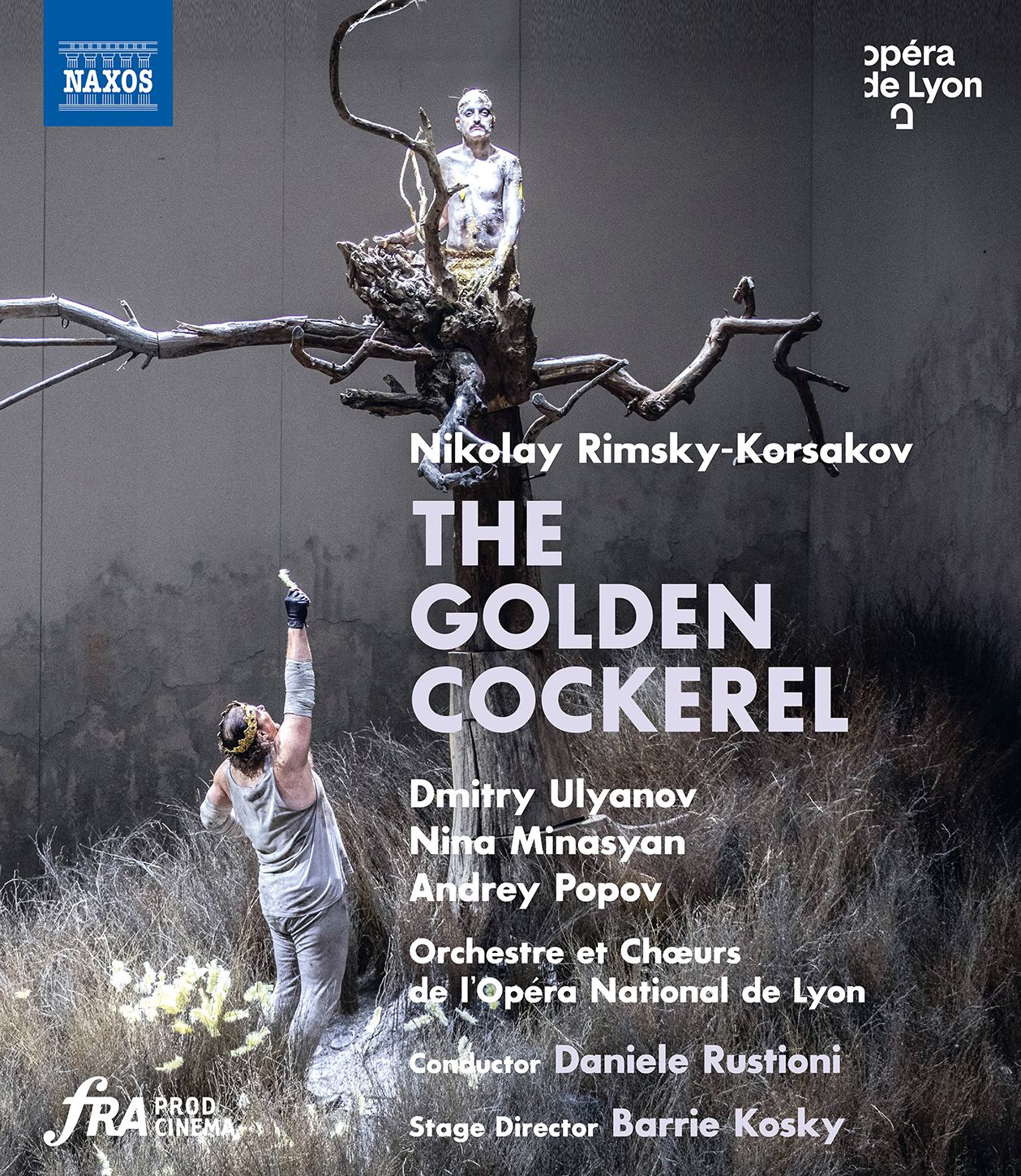Another Rimsky opera: The Golden Cockerel

Some readers might be familiar with the fairly recent performances of The Golden Cockerel by English Touring Opera (I reviewed one at the Hackney Empire). Bizarrely, concluding that review I speculated what Barrie Kosky's production - then in Australia, initially premiered in Aix - would be like. Well. here it is, from the Opéra de Lyon; this post follows on nicely from ou previous considerations of Rimsky opera: Sadko, and Christmas Eve.
Andrey Popov is the ancient Astrologer who dominates the opera’s opening, here in a grey, wintry setting with a leafless, forlorn tree. King Dodon is the formidable bass Dmitry Ulyanov, wandering in the widerness in what looks like his underwear, discombaobulated, convinced Russia is under attack, a once-great leader now a shadow of his former self. His sons, the Princes Guidon and Afron (Vasily Efimov and Anrey Zhilikhovsky) offer him rediculous advice - they end up decapitated and hanging from the bare tree in the second act. Here is Ulyanov:
In the second act it is the Queen of Shemekha who dominates, here the astonishing soprano Nina Minasyan. she enters dressed in blue, with white plumes of frathers as a head-dress, and sings like an angel. I've seen it suggested that this is a reference to seductive Hollywood starlets, and Minasyan is certainly slinkily seductive. Her long song, with its melismas that take us to the world of Sheherazade, is perfectly hypnotic. Here she is in the second act:
The final act is when consequences come home to roost (sorry about that, but it is called The Golden Cockerel). Rimsky's music is hugely atmospheric in the early stages, and Daniele Rustioni marshalls his fporces perfrctly. I tend to associate Rustioni with Italian opera (as in his Royal Opera House Verdi Otello in 2022 review, the simply excellent Macbeth there the previous year, or his conducting of one of the many resucitations of Richard Eyre's production of La traviata); but this reveals someone with anatural instimct for flow in Rimsky-Korsakov, and someone who reacts perfectly to the shifts in language (Rimsky's orientalisms for Queen Shemakha, for example) . Rustioni was a Jette Parker Artist in the 2008/9 cohort and has gone from strength to strength. His understanding of Rimsky's world is excellent; the only conductor of today who exceeds him is Aziz Shokhakimov, whose Strasbourg Tsar Saltan was so revelatory (click here to read my interview with Shokhakimov in Classical Music magazine).
The voice of the Golden Cockerel itself is taken by the amazing soprano Maria Mazarova. Costumes are by Victoria Nehr, and include an army dressed with horse heads. Lighting (Franck Eyin) and set designs (Rufus Didwiszus) all consire to create a world within a world. After all, at the end the Astrologer re-appears in an Epilogue to say that only two characters - himself and the Queen - are 'real'. Kosky's rethinking is superb, although possibly Tchernaikov's Tsar Saltan gave the audience even more to chew on; intriguingly, both investigate the idea of nested realities (or tales within tales) to fine effect.
Note you can rent this from Amazon for £3.99, or buy the video of £9.99 if you want to avoid physical product at https://amzn.to/445IC0V. The product is also available from Naxos in DVD or Bluray format - the present article was reviewed from Bluray.
In terms of the historical catalogue, the Alexander Gauk performance from 1951 with the USSR Radio SO and Choir is part of the big Rimsky box of complete operas on Hänssler: there, Alexei Koroliov is a solid, real-bass King Dodon, Nadezhda Kazantsava is a brilliant, vibrant Queen of Shenakha, and Lina Shukhat is the Golden Cockerel.
